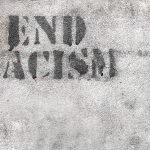Black lives matter. We share the grief, sadness, and anger at the loss of George Floyd, whose murder follows so closely on that of Breonna Taylor, Ahmaud Arbery and so many others. Each of their lives, like each and every Black life in our community and around the world, is unique, beautiful, and irreplaceable, and deserving of respect and dignity. The great and abiding shame of our nation is our inability to acknowledge, confront, and redress the legacy of white supremacy and the failure of our institutions, particularly our law enforcement institutions, to respect the human rights of black and brown people.
Our hearts ache. George Floyd’s life matters. Breonna Taylor’s life matters. Ahmaud Arbery’s life matters. Black lives matter.
We are reaching out to share resources that we believe might be helpful as you reflect on the current and ongoing racism in our country. We hope that these resources will help you reflect on and process the current moment. Of course, this list is not exhaustive, as there are so many dynamics, so many theories, so many histories to grasp in order to do our work of understanding anti-racism. We hope it will, though, provide a place for you to start or some new directions to go. As you find useful resources, please continue to share and learn together.
“I urge white Americans to reflect on their intentions for allying with #BlackLivesMatter. I hope that we all understand that supporting black Americans is the right intention. That means doing a lot more than posting on social media,” writes Jack Kitching, a Neag School alumnus and high school social studies teacher in Hartford.
It’s one thing to learn a skill in a class. It’s another to practice it in the real world, where conceptual lines are blurrier than they are in textbooks. It’s a distinction that leads many professional training programs to feature internships, which some may call clinical experiences of practicums, to complement the skills students learn in class. It is one that led the University of Connecticut’s Administrator Preparation Program (UCAPP) to reexamine internships when it began revamping its offerings to strengthen principal training.
Violet Jiménez Sims, a faculty member in the Neag School and New Britain Schools board of education member, comments on the board’s vow of inclusion in response to George Floyd’s death.
”We need to get ahead of this crisis to survive and thrive together. It is time to provide alternate options in education preparation so we can continue to prepare high-quality leaders and teachers within this ‘new normal,‘” says Patricia Virella.
“As we piece together what the new normal might look like in our high schools, we should take advantage of this disruption to reconfigure the many moving parts that have been used as excuses for maintaining the status quo,” says Michele Back, an assistant professor of secondary and world languages education in UConn’s Neag School of Education.


